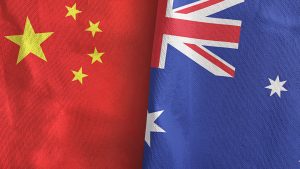On August 21, the Australian Senate unanimously passed an urgency motion addressing the United Nations General Assembly Resolution 2758. By asserting that Resolution 2758, adopted in October 1971, “does not establish the People’s Republic of China’s sovereignty over Taiwan nor determine Taiwan’s participation in the U.N. or other international organizations,” the motion rejects Beijing’s interpretation of the resolution regarding Taiwan’s status that “Taiwan is an inalienable part of Chinese territory.”
The timing of Australia’s Senate motion on Taiwan seems puzzling, especially given the recent efforts to stabilize relations with China. However, there are a few potential reasons behind this decision.
Australia has a strong bipartisan commitment to democratic values and international law. By passing this motion, the Australian Senate reaffirms its support for Taiwan’s participation in the international community, highlighting Australia’s commitment to upholding a “rules-based” international order.
While this move aligns with broader democratic principles, it does not mean a shift in Australia’s One China policy. Australia does not recognize Taiwan as a country but maintains unofficial contacts with Taiwan promoting economic, trade and cultural interests.
The motion was supported across the political spectrum, indicating that it serves domestic political interests as well. Australian politicians may have felt the need to express a firm stance on Taiwan, especially with growing concerns over China’s assertive behavior in the region and expanding influence at the United Nations.
The timing could also be a calculated effort to signal that while Australia is open to improving relations with China, it won’t compromise its sovereignty in interpreting and applying international law to global matters. This approach allows Australia to maintain a balanced stance – engaging with China economically and diplomatically, while also standing firm on its values and security concerns.
The Senate motion also comes amid coordinated efforts among like-minded states to counter Beijing’s push to legitimize its “One China principle” by asserting it as binding international law based on its interpretation of U.N. Resolution 2758, which the international community is expected to accept.
The question arises: Why is Australia once again taking the lead, risking antagonizing Beijing as it did in 2020 when it was the first to call for an independent investigation into the origins of COVID-19? Will this motion undermine the ongoing efforts to stabilize the bilateral relationship?
The Australian government might have assessed that the motion would have limited impact on broader bilateral relations, especially considering Beijing’s interest in “a more mature, stable and fruitful China-Australia comprehensive strategic partnership” as expressed by Primer Li Qiang when he visited Australia in June this year.
Since Australia’s change of government in May 2022, Beijing has softened its diplomatic tone, leading to the resumption of high-level dialogues and visits, including Prime Minister Anthony Albanese’s visit to China in 2023 and Li’s visit to Australia this year. These diplomatic engagements, including the Australia-China High-Level Dialogues (ACHLD), reflect a mutual desire to focus on areas of cooperation and stabilize the relationship. Following the seventh ACHLD, China has also removed tariffs and quarantine restrictions on most Australian goods to which they had been applied, further signaling a commitment to improving ties.
Economically, China needs Australian exports, particularly in natural resources, such as lithium, while Australia remains an important market for Chinese goods, including electric vehicles. Both nations understand the importance of maintaining these economic ties. It is worth factoring in that China’s previous economic coercion between 2020 and 2023 proved counterproductive. These sanctions not only failed to bring Australia to heel but also fueled regional concerns about China’s assertive behavior.
Given the growing geopolitical tensions and the challenges China faces both internally and externally, returning to a poor relationship with Australia is not in China’s best interest. China’s President Xi Jinping, in a speech on March 7, 2023, pointed out that “Western countries headed by the United States have contained, encircled and suppressed China in an all-round way, bringing unprecedentedly severe challenges to China’s development.”
In this context, Beijing needs to avoid exacerbating regional challenges by worsening its ties with Australia. Instead, breaking out of a potential “anti-China” coalition is crucial for China to navigate these complex dynamics and secure its national development.
Interestingly, there has been no official response from Beijing or coverage in Chinese media about the Australian Senate’s motion so far. This silence suggests that China might be downplaying the issue, possibly to avoid fueling tensions and maintain the current trajectory of improving ties.
However, this does not mean Beijing would be muted, as it may be concerned that other countries might feel emboldened to take similar stances. What is certain is that the Australian Senate’s motion on Taiwan will intensify legal battles over Taiwan’s international status.

































